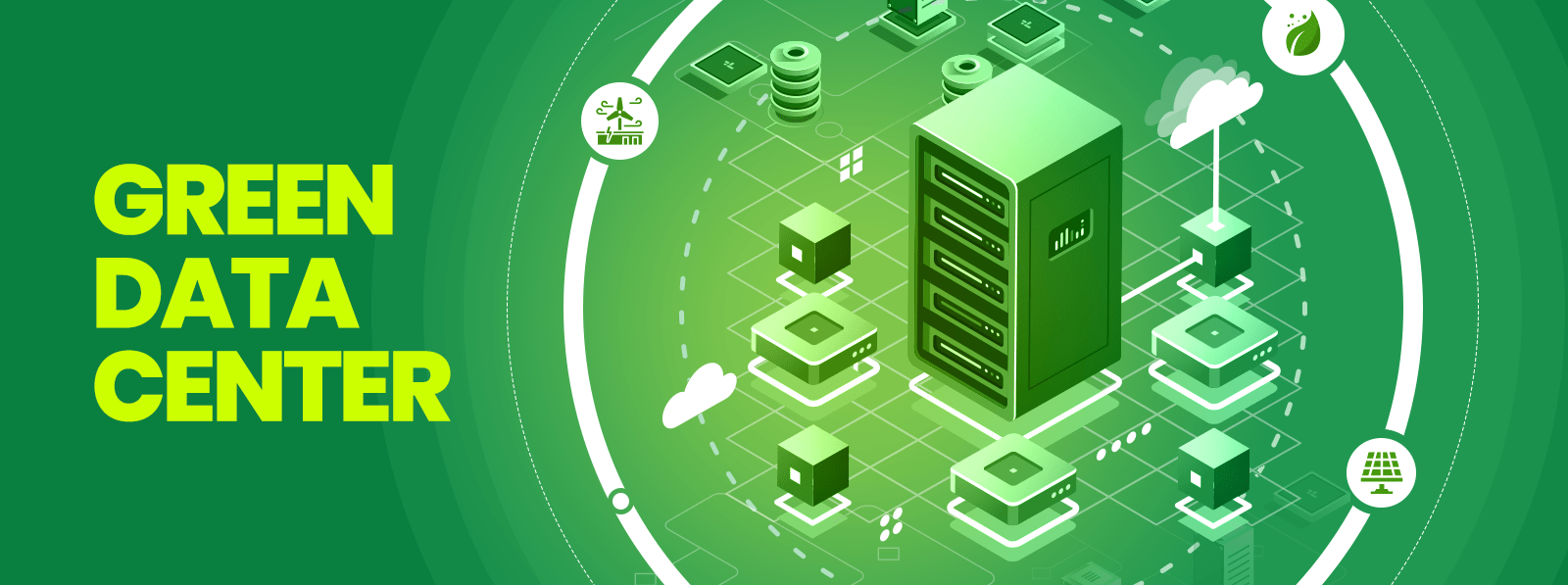Courtesy : www.sunbirddcim.com
Green data center
A green data center, or sustainable data center, is a data center in which the infrastructure is designed to be highly energy-efficient with minimal environmental impact.
Data centers must consume massive amounts of energy to operate, yet despite the growing demand of data center services, innovative technologies and renewable energy sources have resulted in total data center energy consumption only increasing by 6% in the last decade.
Examples of green data centers include:
- LinkedIn’s Hillsboro, OR facility gets free cooling by using an advanced water side economizer that communicates with outside air sensors to leverage Oregon’s naturally cool climate.
- Microsoft’s Project Natick is an underwater data center that uses raw sea water to cool racks.
- Google’s AI DeepMind uses neural networks to predict how different combinations of potential actions will affect energy consumption.
- Apple built a solar farm near its Reno, NV facility that provides 200 MW of renewable power.
- Facebook’s Papillion, NE facility is supported by 310 MW of power generated by a nearby windfarm.
- Switch helped develop technology that eliminates chemicals from cooling systems, increasing water conservation by over 400% and saving more than 155 million gallons of water in three years.
- United Airline’s Chicago, IL site leverages KyotoCooling® air-to-air heat transfer technology to maximize free cooling hours and reduce energy consumption by 420 million kWh over 10 years.
Read about more green data centers around the world.
Measuring the Sustainability of a Green Data Center
Power Usage Effectiveness (PUE) is a metric developed by The Green Grid to measure data center efficiency. PUE is the ratio of the total amount of power used by a data center to the power delivered to IT equipment. A ratio of 1.0 would indicate a perfectly efficient data center in which all of the power coming into the facility is delivered to the IT equipment with none of the power used to cool or light the room and none lost in transmission to the IT equipment. Most data centers target a PUE of less than or equal to 1.5 while green data centers can have a PUE of less than 1.1.
Carbon Usage Effectiveness (PUE) is another metric developed by The Green Grid to measure data center sustainability in terms of carbon emissions. CUE is the ratio of the total CO2 emissions caused by total data center energy consumption to the energy consumption of IT equipment.
Best Practices to Have a Green Data Center
- Introduce instrumentation, environmental sensors, and Data Center Infrastructure Management (DCIM) software to meter and monitor the environment
- Increase temperature set points and follow ASHRAE guidelines for rack inlet temperatures
- Introduce hot/cold aisle containment
- Consider data center consolidation and virtualization
- Minimize bypass airflow
- Bill back customers for the energy they use
Increasing Energy Efficiency with DCIM Software
Data center energy efficiency is critical to effectively managing your data center. Leveraging a comprehensive DCIM software can give you both the capabilities and the information you need to minimize data center energy consumption while maximizing operational efficiency. When looking to reduce costs or meet green goals, consider your current data center energy management strategies and whether they are still sufficient for safely operating your data center without sacrificing uptime or wasting resources.



